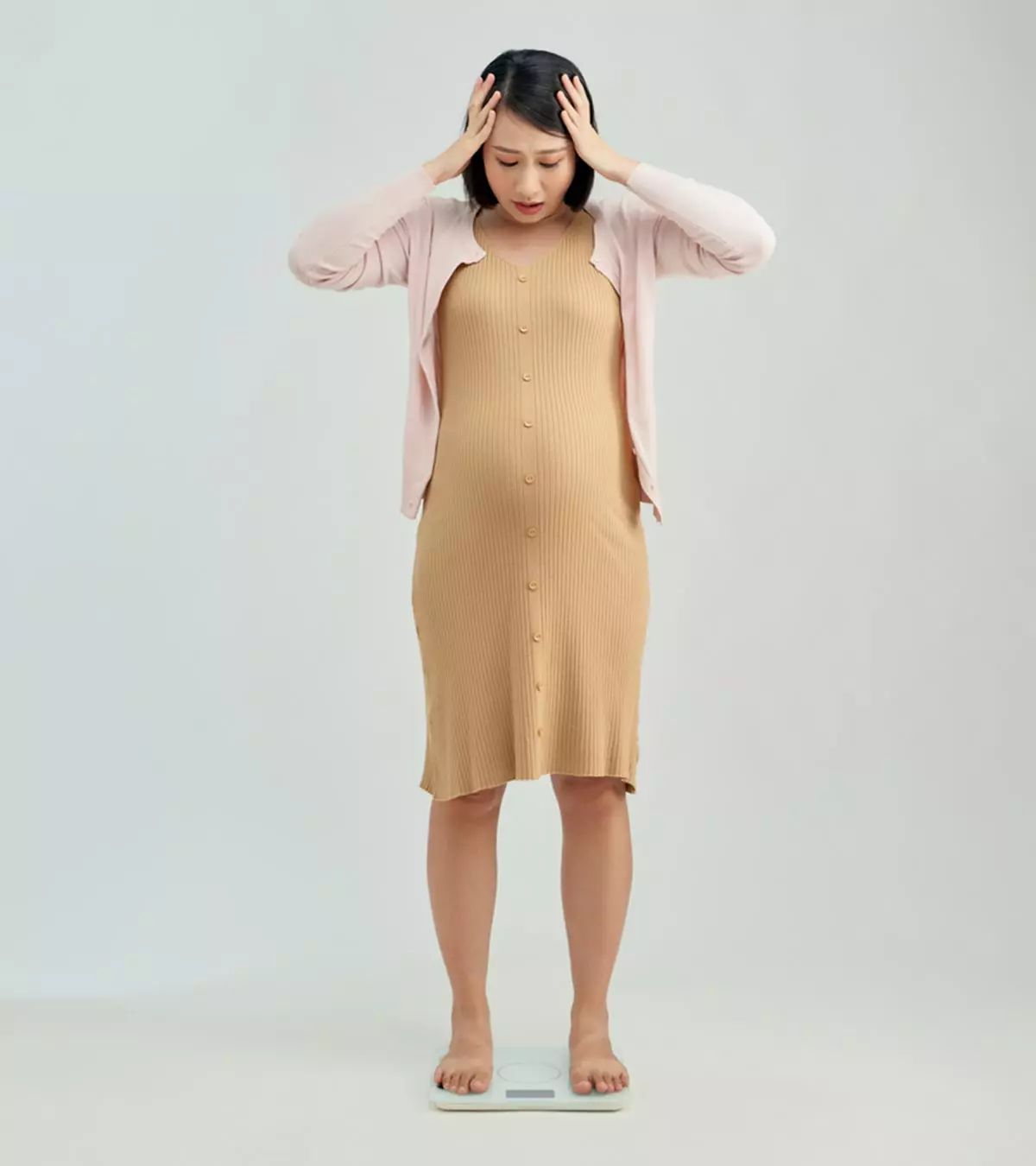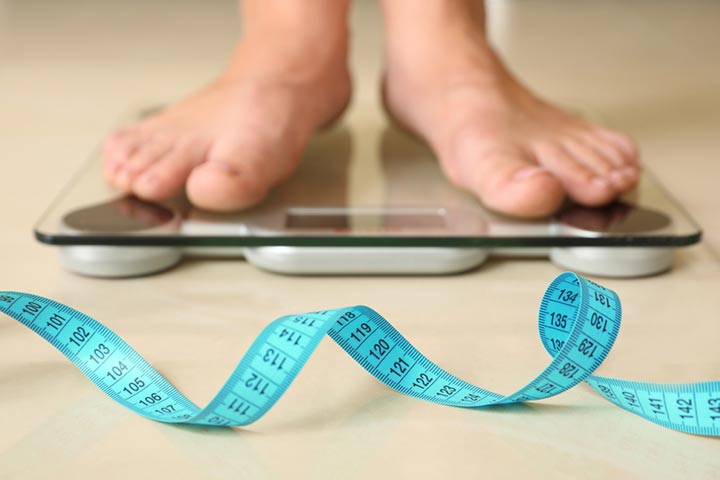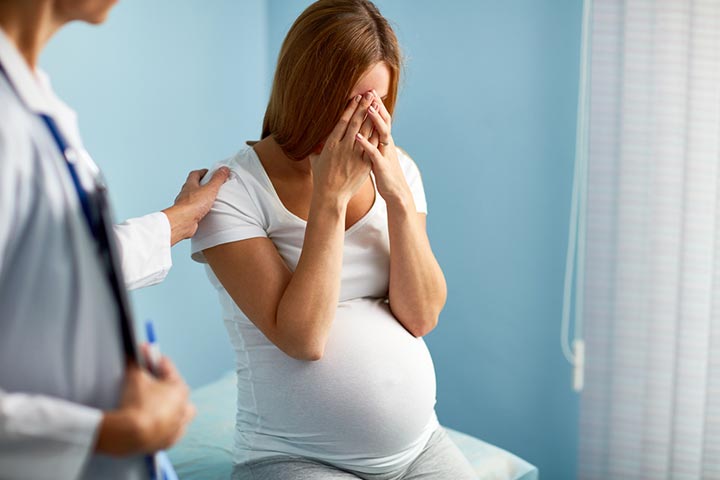
Image: Shutterstock
Pregnancy is one of the most life-changing milestones that a woman goes through, and the one thing that is bound to accompany you through this journey is weight gain. It is a normal phenomenon and even necessary for you to gain weight during pregnancy. It indicates that your little one is growing.
Even though weight gain during pregnancy is entirely normal, several women experience anxiety and suffer from depression. There is a specific term for worrying excessively over pregnancy weight gain and trying to control it. It’s called pregorexia (1). The behavioral patterns associated with this can be detrimental to your health and your baby’s.
Staying Within The Safe Limit
It is important that you ask your doctor how much weight you need to gain or lose. As a general rule, women who are overweight are required to gain around 15 to 25 pounds. On the other hand, women who are underweight before getting pregnant will have to gain about 28 to 40 pounds during their pregnancy. Women who had an average weight reading before pregnancy will have to gain around 25 to 35 pounds. However, it is essential to know that all of this weight should not be gained at once (2).
In the first three months of pregnancy, you should gain around 2 to 4 pounds. After this, you should gain about 1 pound each week throughout your pregnancy. This will be different in case you are expecting twins or triplets. Consult your doctor to be sure about it (3).
To avoid complications for you or your child, it is best to stay within the safe limit of how much weight you are required to gain. In some cases, if you are overweight and have gained excessive weight, the doctor might suggest healthy ways to lose the extra weight for the benefit of you and your baby.
Why Weight Gain Is Necessary
It might seem like all the weight you gained is going into your belly and buttocks, but here’s the thing — all the weight you gain is going into the development of your little one. In fact, not gaining the necessary weight can put you at risk of having a preterm baby, or your baby might end up being underweight. Of all the weight you have gained, the baby is accountable for about 8 pounds. The rest goes towards the larger uterus, placenta, breast tissue, and fat accumulated for breastfeeding, blood supply, amniotic fluid, and fat stored for the time of delivery (4).
How To Deal With Depression Associated With Pregnancy Weight Gain
Your body is going through a lot of changes, and these changes can be extremely overwhelming. Know that the weight you have gained is not permanent. After delivery, you are bound to lose half your baby weight (5).
Over the next few weeks, your hormones will slowly get back to functioning the way they did before pregnancy. It is essential to talk to your doctor about your worries. This can also help the doctor figure out if you are suffering from prenatal depression (6). If yes, your doctor can help you out through this difficult time. Talk to your family and friends about how you feel and seek their support. Do not cut back on food, as both you and the baby require nutrition. It is good to incorporate a good workout routine, so ask your doctor about a few exercises that can work for you.
You should remember that you are a strong woman who is about to bring a new life to this world. Weight gain during pregnancy is a given, but that does not mean you have to feel bad about yourself. The weight you gain is not going to stay forever, and with the proper diet and exercise after delivery, you can get back to your pre-pregnancy weight. Have you been facing the same challenges during your pregnancy? Comment below and let us know how you’ve been dealing with it!















